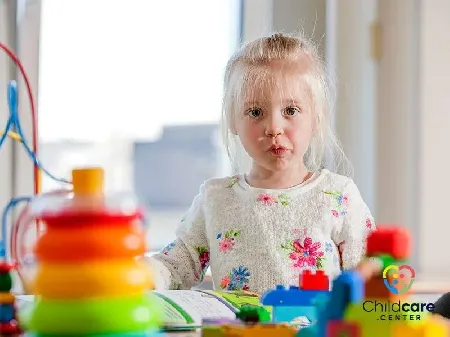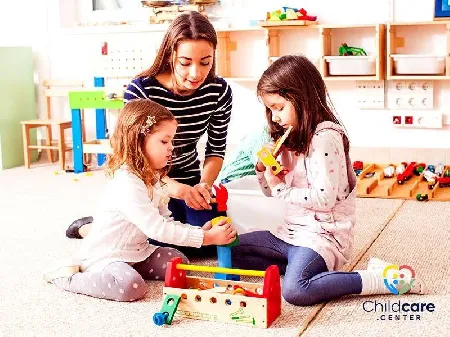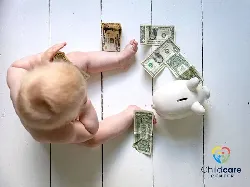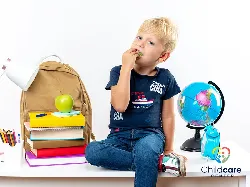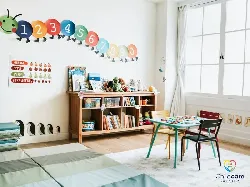When Do Kids Start Preschool? A Comprehensive Guide

Starting preschool is an important milestone for a child and one that can often be exciting for both the child and their parents. It marks the point where a child begins to learn new skills, make friends, and develop independence. And as a parent, you want to give your child the best start in life. But when is the right time to send your child off to preschool?
In this comprehensive guide, we'll explore all things related to early childhood education - from when kids should start attending, to what kind of program best suits their needs. We'll also look at what benefits children gain from going to preschool and how parents can prepare for this transition.
What is preschool?
Preschool is a crucial time in a child’s life when they are first starting to learn about the world around them. It is important for preschoolers to be in an environment where they feel safe and comfortable in order to learn and grow. A good pre-k program will offer a variety of activities and experiences that are designed to help children develop physically, emotionally, socially, and cognitively.
At preschool, teachers provide instruction in literacy, problem-solving, and math skills. They also create opportunities for developing positive relationships with peers as well as teaching important life skills such as taking turns, sharing materials, communicating effectively, self-help, and more. Many preschools also offer activities such as music classes or physical education classes that help promote the healthy development of young minds.Physical development includes things like gross and fine motor skills, as well as coordination and balance.
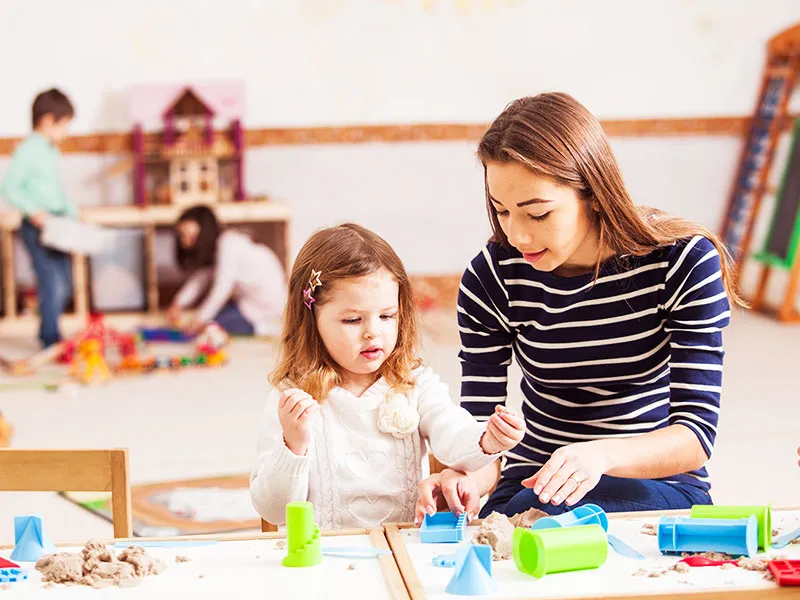
Emotional development involves learning how to express and manage emotions and developing a sense of self-awareness and self-regulation.Social development includes learning how to interact with others, make friends, and resolve conflicts. And cognitive development includes things like attention span, memory, problem-solving, and critical thinking.
All of these areas of development are important, and a good preschool program will offer a balance of activities to help kids grow in all areas. Preschool is a time for children to explore, experiment, and have fun, while also laying the foundation for future success in school and in life.
Preschool is more than just a place for children to spend their day while parents are at work; it's a nurturing environment that fosters growth in every aspect of a young child's life. For a comprehensive look at how these early educational experiences can shape your child's future, read 'The Various Benefits of Attending Preschool for Toddlers', which delves into the myriad ways a quality preschool program can contribute to their physical, emotional, social, and cognitive development.
How Old Are Preschoolers?
Children in the pre-kindergarten age group are typically between three to five years old. They are typically enrolled in pre-k programs that help them learn basic skills such as counting, shapes, and colors. A high-quality Preschool provides a safe and nurturing environment for young children to develop social, emotional, language, and motor skills.

In UNIVERSITY OF THE PEOPLE website about the structure of the Canadian education system at the pre-elementary level said:
“pre-elementary or ‘kindergarten’ is the first stage of education in Canada and is offered to children between the ages of four to five before they start elementary school. In New Brunswick and Nova Scotia, this is mandatory, while everywhere else it is optional.” But most preschoolers are 3 to 5 years old when they enter kindergarten and continue until they reach the age of five or six when they begin kindergarten.
The best course of action is to contact your local preschool and find out what age children can enroll. During this time period, preschoolers learn basic academic and social skills that will set the foundation for their later school years ahead. Through interactive play-based activities such as music, art projects, outdoor exploration trips, story time sessions, and more; teachers guide their students in problem-solving tasks that encourage independent thinking.
Types of Preschools
Early learning centers offer an essential introduction to education for youngsters and their guardians. Selecting the appropriate early childhood program is a pivotal choice for parents, as it lays the groundwork for subsequent academic achievements. Numerous early education options are available, each embracing its distinct educational methodology. Some preschools focus on academic skills, while others place more emphasis on social and emotional development.
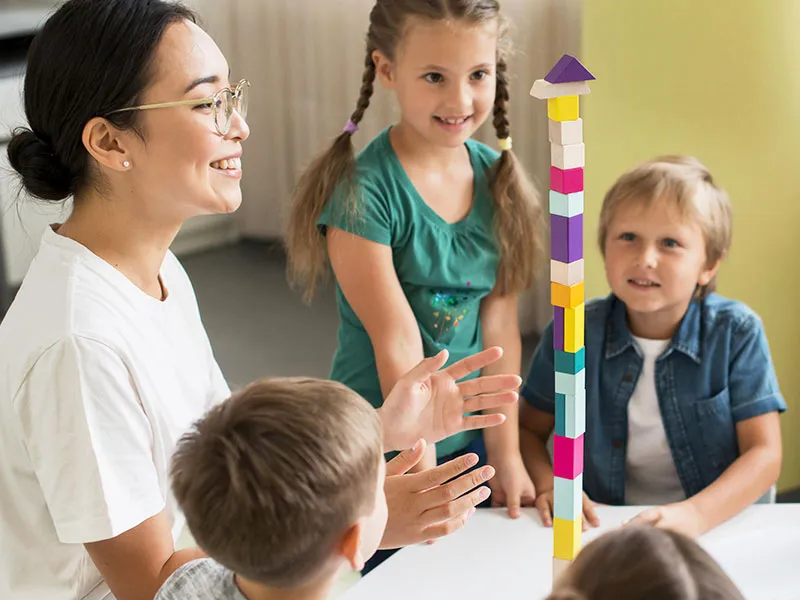
Various early learning centers align with specific religious beliefs, while some remain non-religious. The environment in which these programs operate can vary, from conventional classroom setups to more relaxed, home-based environments. It's vital for parents to delve into the diverse early education options to pinpoint the ideal match for their youngsters. Factors like location, timing, expense, as well as the center's educational stance and curriculum, should be weighed. For an in-depth exploration of each,check out “What Are the Different Types of Preschools”, which delves into how these philosophies profoundly influence child development.
- Montessori: this popular option emphasizes self-directed learning experiences that enable children to explore their environment in a way that best suits their individual needs and interests.
- Waldorf: This methodology is based on the importance of creativity, imagination, and holistic experiences in learning. The underlying belief is that physical and academic development should go hand-in-hand with a spiritual understanding of the world.
- Reggio Emilia: This approach places an emphasis on creativity, collaboration, communication, exploration, and discovery in the classroom setting. Students are encouraged to be actively involved in their own learning process.
- HighScope: This system utilizes a plan-do-review methodology as its backbone and focuses on child-initiated activities, active learning, and collaborative experiences. As a result of this unique approach, children acquire the skills necessary for success in school and beyond.
- Bank Street: This approach focuses on creating an environment that promotes learning through active engagement. The goal of this approach is to provide children with meaningful, Practicum experiences that promote curiosity, exploration, and creativity.
- Parent Co-Ops: This method of homeschooling has been gaining popularity as more parents are looking for alternative ways to educate their children without sacrificing quality or socialization opportunities.
- Religious: This method typically includes learning about various scriptures, stories associated with a certain faith, and songs or hymns that reflect its teachings.
- Emergent: This approach allows the teacher to observe the students' natural development, assess their strengths and weaknesses, then design unique projects tailored specifically for them.
How to choose the best preschool for your child?
When it comes to choosing a preschool for your child, it's important to make sure you're selecting the best one. Whether you are looking for a private or public school, there are many factors to consider when making this important decision. A good place to start is by asking yourself questions like these:
- What do you want your child's preschool to look like?
- What are my child's academic needs?
- What type of environment do I want?
- Am I looking for an academic program or something more creative and hands-on?
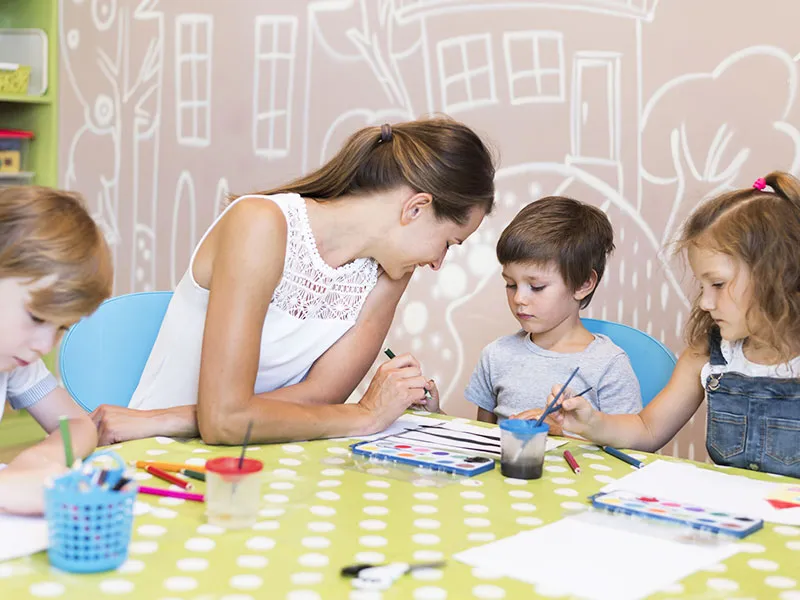
- Do I want a preschool with a specific curriculum or one that is more open-ended?
- What type of activities will your child be involved in?
- How would you describe your child's personality?
- How much will my child learn during the day?
- How many children will be in my child's class?
- Do you prefer smaller class sizes or larger schools with more activities?
- What is the ratio of children to teachers?
- How many hours does the school offer each day?
- What kind of transportation does the school offer for pick up and drop off?
- Does the school offer a snack program, or do you want to pack lunch for your child?
- How much does tuition cost?
Then determine your needs and goals in selecting a preschool and make sure that whatever school you choose meets these criteria as much as possible. Next, research all of your childcare center options.

Check out online reviews and talk to friends who have had kids attend the same school you're considering.
It can be challenging to figure out which daycare or preschool will be best for your child, but knowing what to look for can help make this decision easier “How to Choose the Best Daycare for Your Child “ article examined the details you need to pay attention to when choosing the best daycare center for your child.
Getting your child ready for preschool. Tips to make the most of the process.
Some parents struggle with the thought of sending their children off to preschool. Some may feel overwhelmed by the thought of trying to find an appropriate school, or they may be worried about how their child will adjust to the environment. However, there are ways to make the transition easier for your child and you. One thing you can do is start early by talking to your child about what preschool is like, what they might expect, and what they should do when they arrive. Explain that they will be going to a new place with new people and new activities. Doing this allows them to understand that a preschool is a place where they can learn and have fun so feel more comfortable and confident when they get there.
Next, start preparing your child for the daily routine of preschool. Start by having breakfast and getting dressed at around the same time every day; this will help them get used to an everyday structure that they will need when attending school. And also, will help them to understand the importance of personal hygiene.
Another tip is to practice activities such as counting or tracing shapes with your child in order to build the basic foundational skills required for academic success. This can also help familiarize them with school-type activities before they even begin attending class!
Make sure to spend some time talking about the rules of preschool. Explain that there are certain things that are expected of them, such as listening to the teacher and being kind to their classmates. Help them to understand that following the rules will help them to have a positive experience at preschool.
Lastly, make sure you are prepared for the day-to-day activities and routines that preschool might have. For example, if your child's school does not have a water table, you can find one online or at a local store.
The tips are more and depend on the situation are different but as a parent, you should consider the first day at daycare can be both exciting and nerve-wracking for your child so “The First Day at Daycare” blog post will take you through the steps you should take to prepare your toddler for their first day at daycare.
Is your child ready for preschool?
This is a question that all parents ask themselves when their little one reaches the age 3 or 4 and decide to start a preschool program. Deciding whether your child is emotionally and mentally prepared for preschool can be a difficult decision, but having an understanding of what it takes to make the transition easier can help.
Preschool requires some basic skills from children in order to get the most out of their experience. Children should have some level of comfort with separation from their parent or guardian, play well with others, have basic communication and comprehension skills, follow directions, and manage toileting tasks independently. Additionally, the ability to express feelings and recognize emotions in others is beneficial as they are exposed to new people and experiences on a regular basis.
Conclusion: Don't push your child to start preschool, but don't wait too long.
Many parents are asked to make a decision when it comes to whether or not to start their child in a preschool program. Most parents will say that they have to start their child in a preschool program because of time constraints but it is important to know there is no “one size fits all” answer to when kids should start preschool. The age range of 3-5 years old should be used as a guide, and parents should take into account their own child’s unique situation when deciding when they are ready for preschool.
We hope this blog post has helped you to make a decision about when your child is ready for preschool. The most important thing to do is to have your child's needs and interests at the forefront of your mind. Remember that your child's happiness and satisfaction are more important than achieving a particular preschool age developmental milestone.
We hope this blog post has helped you better understand why it's so important to wait until your child is truly ready to attend preschool. If you feel like your child is ready to start preschool and pre-k, but you're not totally sure, we recommend you contact your child's pediatrician to help you make an informed decision. If you have any other questions or concerns about your child's readiness to start preschool, please contact us anytime at info@kinderpage.ca. Thank you for reading, we are always excited when one of our posts is able to provide useful information on a topic like this!




